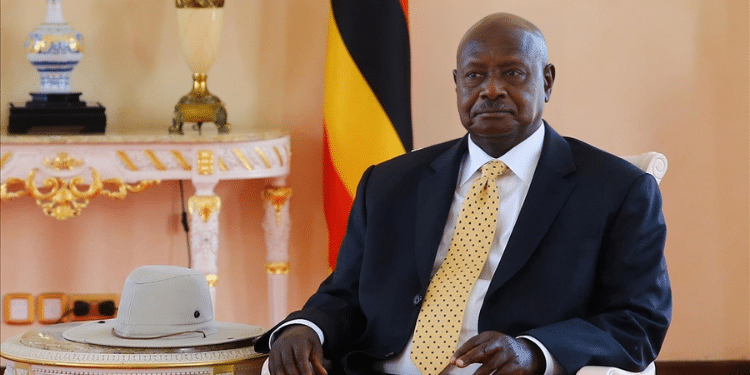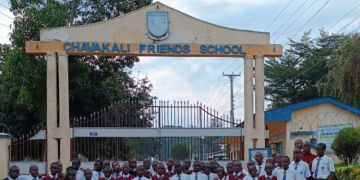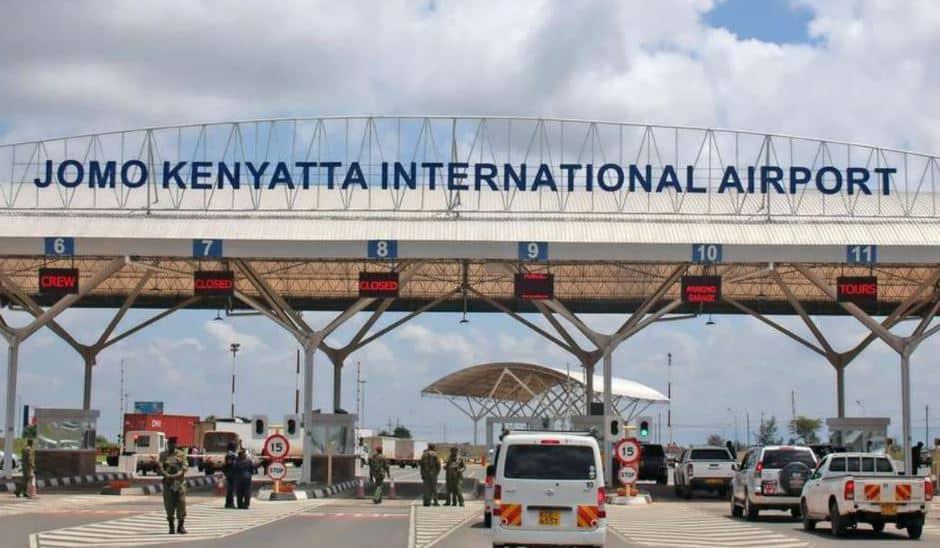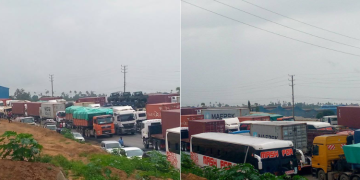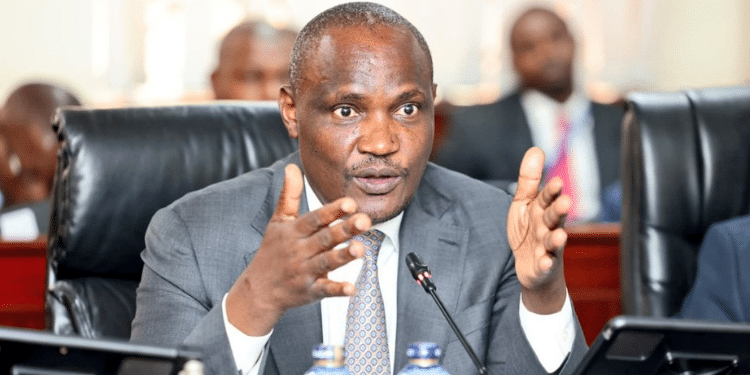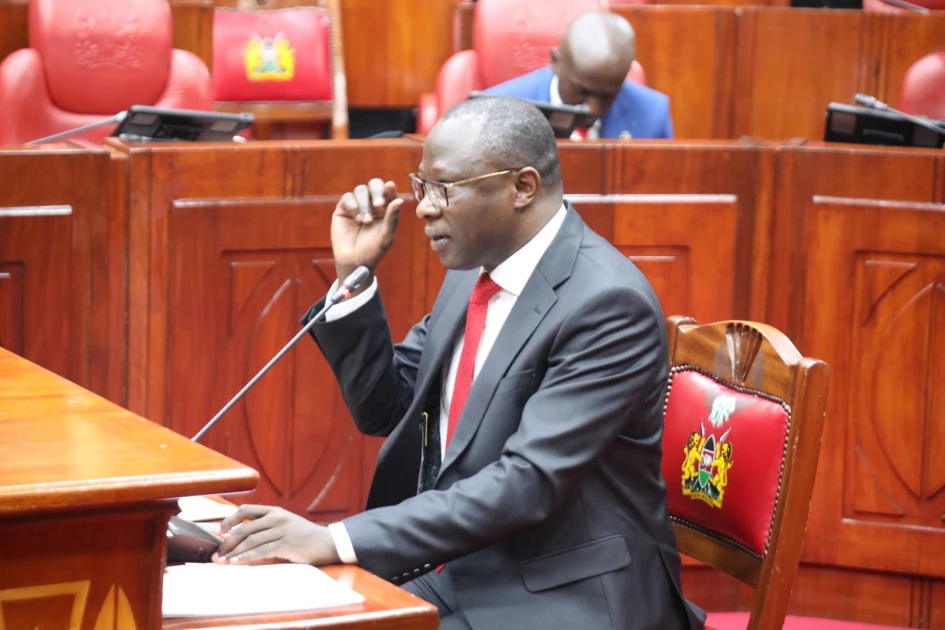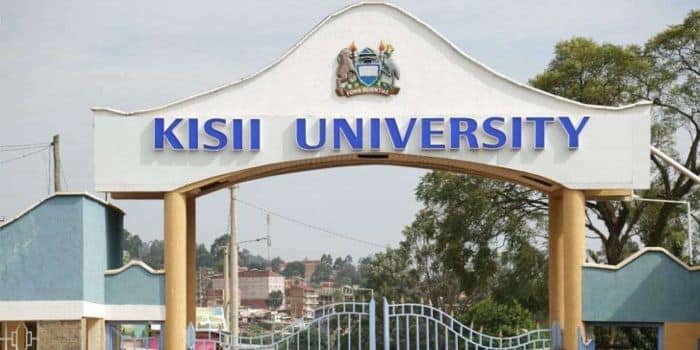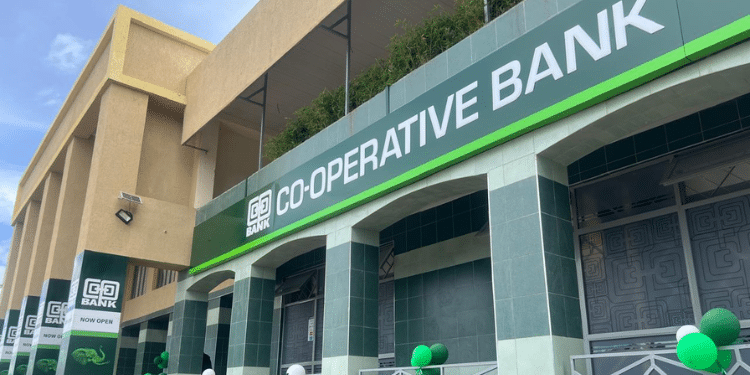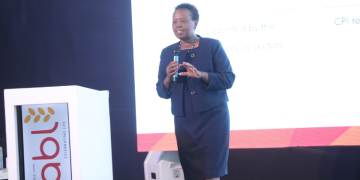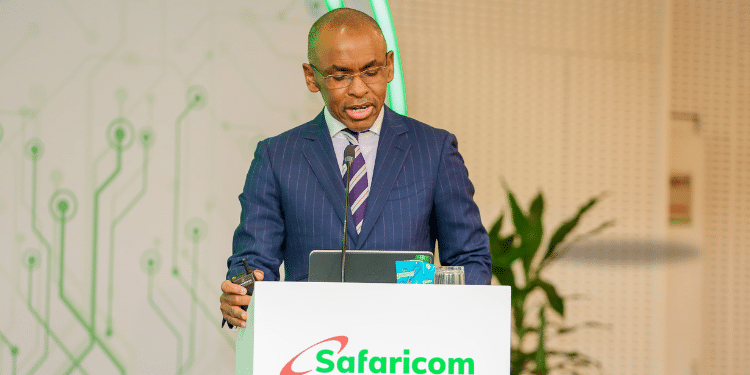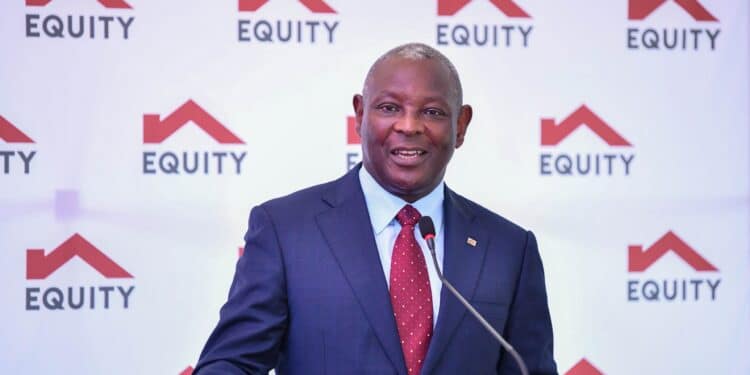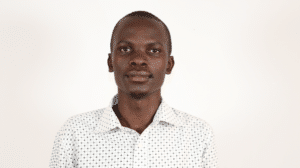Equity Group Holdings has proposed a record dividend of Kshs15.1 billion for a second year running.
While releasing the 2023 full year financial results, Dr. James Mwangi, the Group Managing Director and CEO said the Kshs4 per share dividend amounts to a 36% payout of the Kshs.43.7 billion Profit After Tax.
The Bank’s net interest income grew by 21% to Kshs104.2 billion, up from Kshs.86 billion while non-funded income registered an impressive 30% growth to hit Kshs75.9 billion up from Ksh58.3 billion.

The Gross trade finance revenue grew by 90% to Kshs11 billion from Ksh5.8 billion driven by a 106% growth of trade finance related lending and 26% growth of trade finance guarantees and off-balance sheet items.
Total costs grew by 52% to Kshs.128.2 billion up from Ksh84.5 billion principally driven by a 139% growth in loan loss provision of Ksh32.8 billion up from Kshs.13.7 billion to strengthen asset quality buffers.
Other operating expenses and staff costs grew by 39% and 28% respectively driven by high inflation and depreciation of the Kenya shilling.
Return on average equity stood at 22.3% against an 18% cost of capital.
However, the Profit After Tax declined by 5% to Ksh43.7 billion down from Ksh46.1 billion as a result of interest expense growing at 53% compared to 30% growth rate of interest income.
Equity Bank Recorded Growth in the Following Areas
The bank’s gross balance sheet grew by 26% to Kshs.1.821 trillion up from Ksh1.447 trillion driven by 29% growth in customer deposits to Ksh1.358 trillion from Ksh1.052 trillion.
Shareholders’ funds grew by 20% to Kshs.218.1 billion up from Kshs1.82.2 billion.
Deployment of funding saw net loans grow by 26% to Kshs.887.4 billion up from Kshs.706.6 billion while government securities holding grew by 27% to Kshs.500.5 billion up from Kshs.394 billion as cash and cash equivalent grew by 25% to Kshs.290.1 billion up from Kshs.232.4 billion.
During several challenges, Equity recorded growth in the number of customers to 19.6 million up from 10.4 million during this period.
Customer deposits also increased to Ksh1.358 trillion up from Kshs.303.2 billion while the loan book has grown to Ksh887.4 billion up from Ksh269.9 billion.
Total assets have grown to Ksh1.822 trillion up from Ksh428.1 billion as shareholders’ funds grew to Ksh218.1 billion up from Ksh72.1 billion.

Risk Management Strategy
The Group registered a Portfolio at Risk (PAR) of 11.7%, a slight improvement from 12.2% at the end of 3rd quarter and favorably comparing with 14.8% industry Nonperforming Loans (NPLs).
Dr. Mwangi explained that the NPL trend is consistent with management’s view as at the investors 3rd quarter briefing that NPLs had peaked.
“Prudent risk management culture led the board to approve a proactive derisking of future performance by providing for the lifetime expected loss on outstanding NPLs and increasing loan loss provision by 139% to Ksh32.8 from Ksh13.7 billion driving cost of risk to 4.4% while increasing NPL coverage to 67.3%,” he said.
The defensive strategy adopted by the Group has seen it register strong risk buffers of 53.4% liquidity, relatively strong asset quality with strong NPL coverage and strong capital buffers.
Total capital to risk weighted asset ratio of 18.1% reflects a buffer of 3.6% above minimum capital requirement of 14.5% while core capital to risk weighted asset ratio stood at 14.3%, a buffer of 3.8% above the legal requirement of 10.5%.
Also Read: Equity Group Ranked 2nd Strongest Banking Brand in the World
Performance in East Africa
To tap into the growing East Africa market, the Group completed the acquisition of Cogebanque in Rwanda on 30th November 2023.
It was subsequently merged into Equity’s existing business, adding Kshs.36.7 billion in assets resulting in a subsidiary with significant scale with total assets of Ksh127.7 billion and 18% market share.
This firmly positions Equity as the second largest bank in Rwanda, which is one of the fastest growing economies in the world.
The Group has become systemic financial services provider in East Africa in position one or two in four of the six markets it operates in: Kenya, DRC, Rwanda, and South Sudan.

Equity’s deposit distribution is as follows: Kenya 50%, DRC 32%, Uganda 8% and Rwanda 6% with a loan distribution: Kenya 51%, DRC 32%, Uganda 8%, Rwanda 6%.
“Regional banking Subsidiaries and other non-banking subsidiaries hold 50% of the assets, 51% of all revenue and 56% of profit before tax making Equity Group a truly Eastern Africa regional financial services group,” read the statement.
Equity Life Assurance has attracted 1,274,980 unique customers and closed the year with total assets of Ksh19.2 billion, profit before tax of Kshs.934 million giving a return on average Equity of 70.4% and a return on average assets of 5.4%.
As of 30th September, Equity Life Assurance had captured 2% of life industry market share at 13th position in the industry and 7% of Group life and credit market share at 6th position in the industry.
The Group announced that its insurance business will venture into Health and General Insurance in the course of 2024.
Also Read: Equity Bank Set to Acquire Rwandan Bank
Loan Rates
Equity Group opted to maintain 32% of its consumer loans to salaried civil servants, teachers and private sector employees at 13% interest rate to cushion them and their families during these difficult times.
This is despite approval by the Central Bank to adopt risk-based lending rates, currently at 20% to 24% for consumer and retail lending and treasury bills and bonds, attracting 17% /18%.
The Bank has also maintained all loans disbursed during the interest rate capping period at 13% interest rate.
As a result, interest expense for deposits grew by 53% from Kshs.336 billion to Ksh51.4 billion while interest income on loans grew only by 30%.
Enterprise Development & Financial Inclusion
The Group’s Foundation has trained over 2.4 million youth and women in Financial Education, 517,2467 micro, small and medium-sized enterprises (MSMEs) trained in entrepreneurship with over Ksh275.3B disbursed to trained youth, women and MSMEs.
The Young Africa Works Program through financial literacy, entrepreneurship training, business development services and digital literacy has successfully created over 1.3 million jobs.


